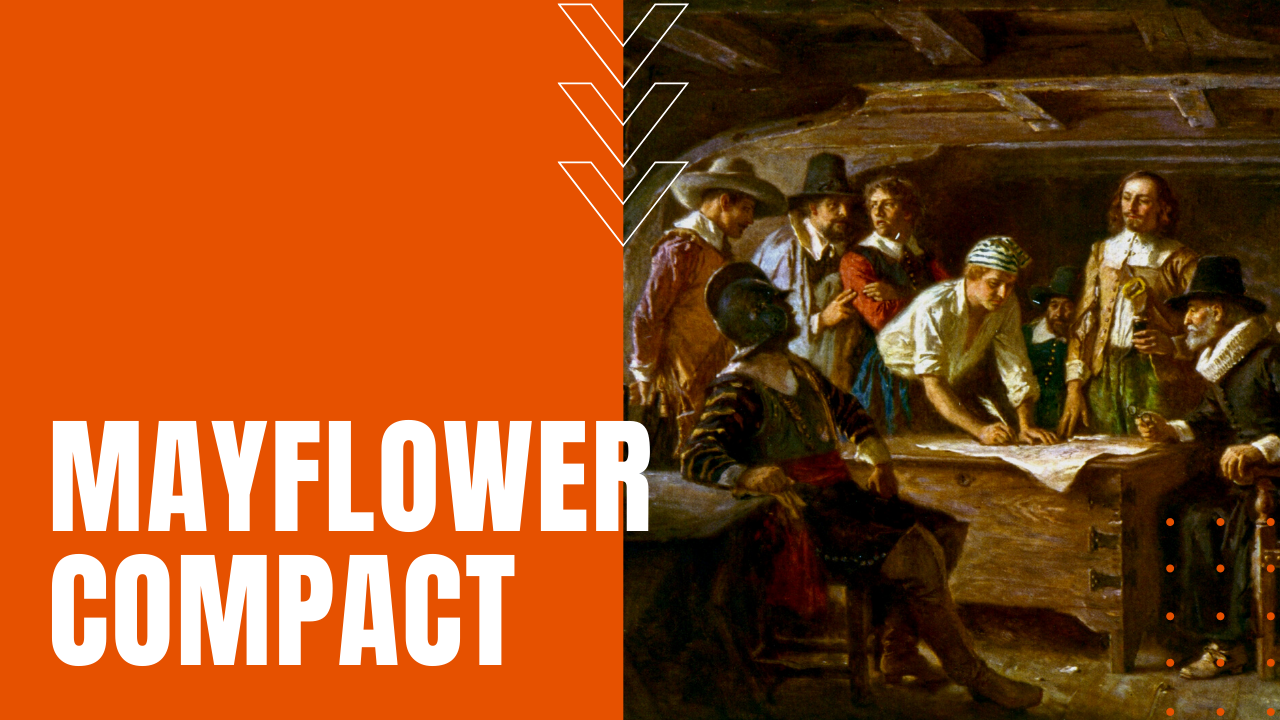The Mayflower Compact

Of the 102 passengers aboard the Mayflower, just 41 were true Pilgrims seeking religious freedom from the Church of England, while the rest were made up of merchants, craftsmen and indentured servants who the Pilgrims called “strangers.”
Virginia Company Contract
For their part, the Pilgrims had signed a contract with the Virginia Company to occupy land near the Hudson River, which was then part of northern Virginia, but after treacherous shoals and worsening storms drove the Mayflower badly off course, they landed near present-day Cape Cod Massachusetts, which was well outside the jurisdiction of the Virginia Company.
Discord soon ruled the day when the strangers proclaimed that they were no longer bound by the Virginia Company’s charter or contract, nor did they feel the need to recognize any rules, since there was no formal government presiding over their lives. Pilgrim leader William Bradford would later write about the situation that
“Several strangers made discontented and mutinous speeches.”
William Bradford, Pilgrim leader
Knowing that the Pilgrims needed every productive hand to make their colony a success, they created a provisional set of laws to rule all colonists by majority consent.
What Was the Mayflower Compact?
Now considered a relatively short document in today’s wordy jurisprudence, the Mayflower Compact established that the colonists would remain loyal subjects to King James, despite their need for self-governance. They also agreed to create and enact “laws, ordinances, acts, constitutions and offices…” for the good of the colony, and to abide by those laws, while creating a singular society where all men and women would work together to further its success, all the while living in accordance with the Christian faith.
As a result, on November 11th, 1620—the day the Mayflower made landfall—41 adult male colonists signed the Mayflower Compact, and while it remains unclear who actually penned the document in question, many historians give credit to pastor William Brewster. One key signer was Myles Standish, an English military officer hired by the Pilgrims to accompany them to the New World for the purpose of military leadership, who in turn played a key role in enforcing the new laws, as disputes and conflicts inevitably arose over time between the fledgling colonists.
